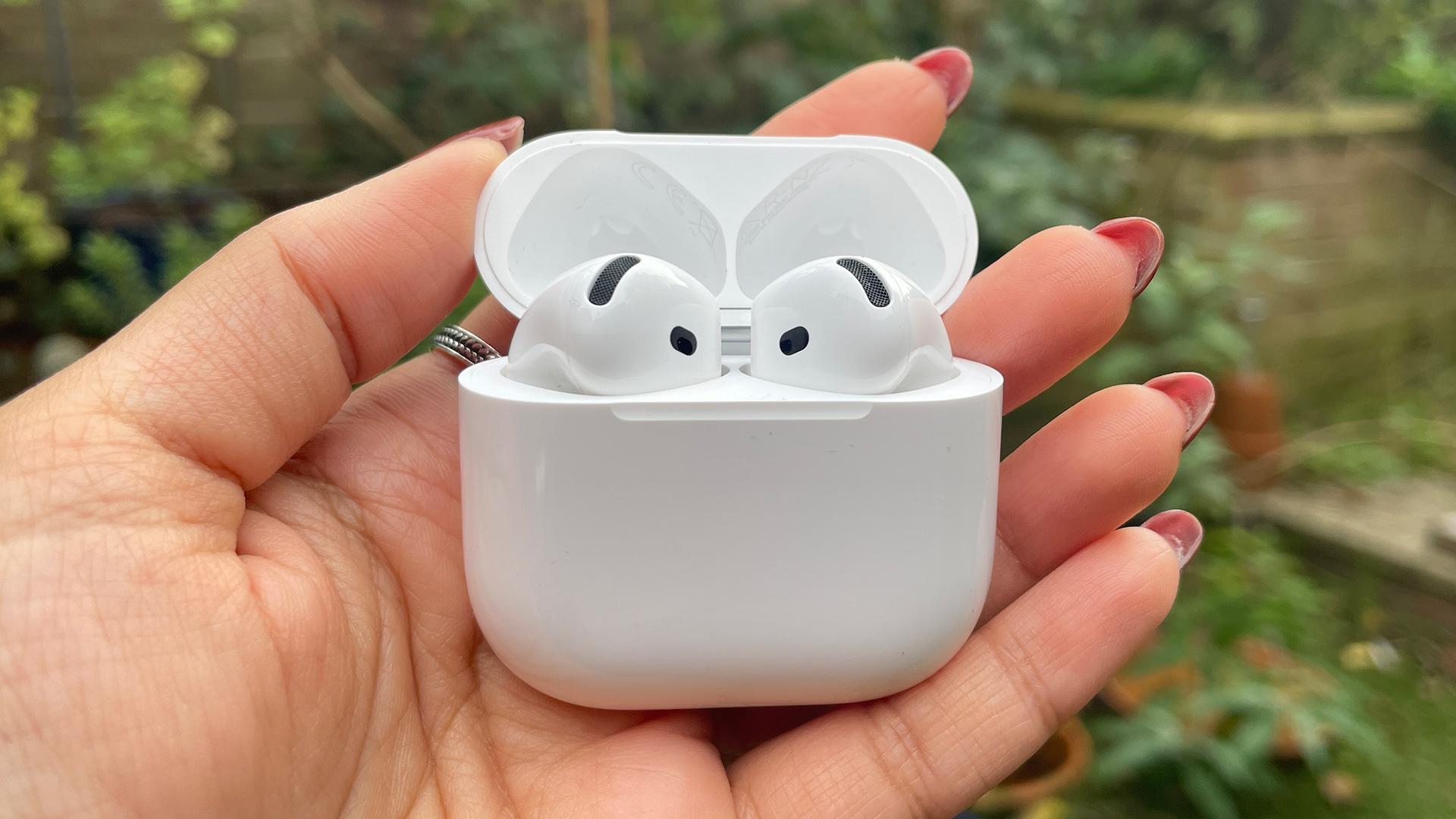
When Apple announced its next generation of AirPods would include noise cancelling in an open (ie no eartips) design, eyebrows were raised. Both of them.
The AirPods 4 launched in two variations: a standard model, and one with active noise cancellation (ANC), the latter of which we are testing here. How exactly would these AirPods 4 deliver effective sound blocking, while also delivering substantial sound quality and all the bells and whistles expected of a pair of modern wireless earbuds today? Apple, it turns out, has done its research and delivered a combination of features and performance that we didn’t know we wanted.
The AirPods 4 with ANC aren’t the perfect pair of earbuds, but they offer a little bit of everything to be enticingly effective.
Price
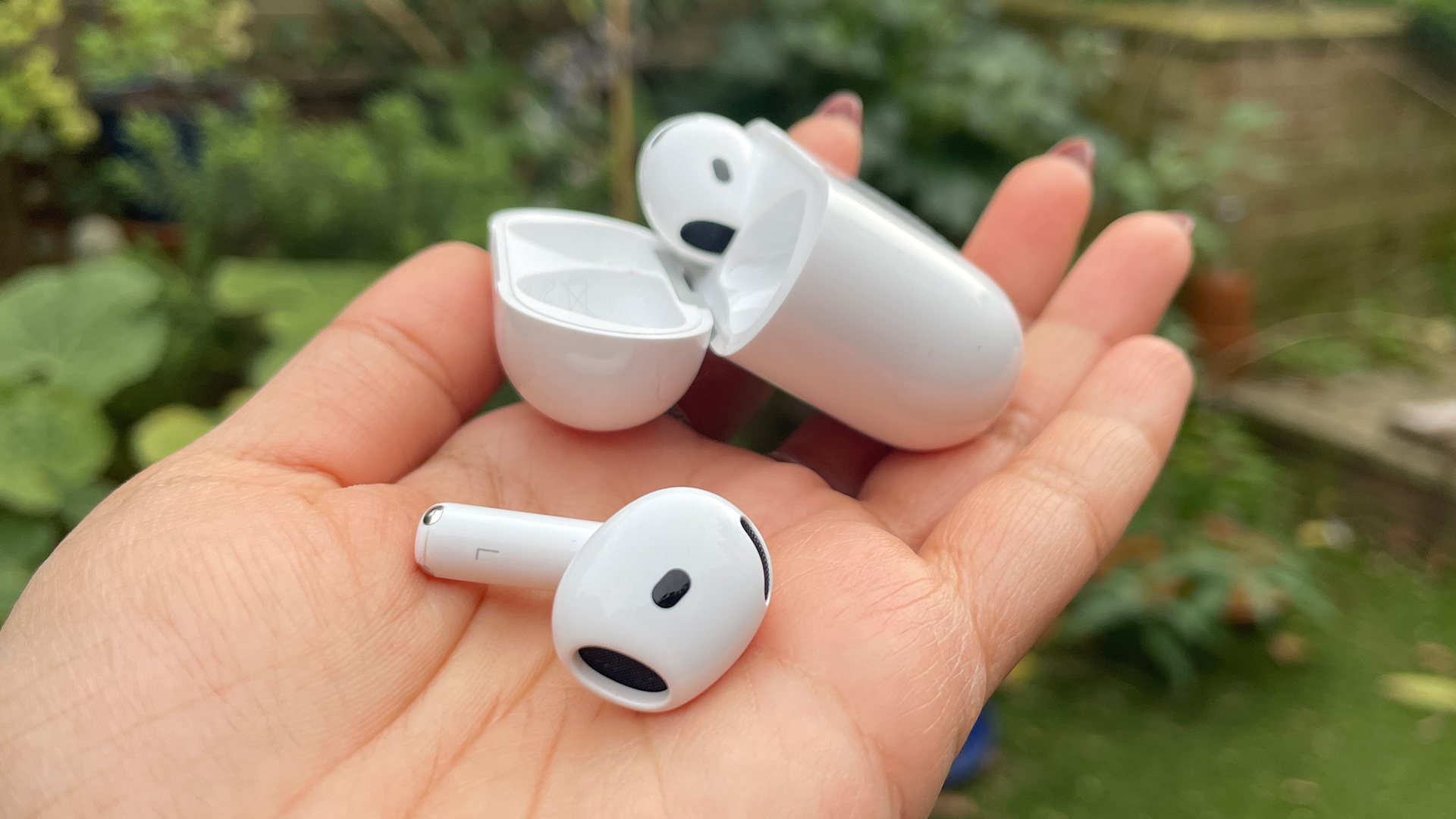
The Apple AirPods 4 with Active Noise Cancellation (or AirPods 4 with ANC for short) costs £179 / $179. Happily, it’s the exact same price as the previous generation they’re replacing, the AirPods 3 (from 2021). The AirPods 4 with ANC sit firmly in the mid-range price bracket where there are plenty of decent alternatives from the likes of JBL, Technics and Cambridge Audio, although not many extraordinary ones.
The real competition for the AirPods 4 with ANC is actually from within. These buds aim to bridge the gap between the standard AirPods 4 (£129 / $129) and the five-star flagship AirPods Pro 2 (£229 / $249), the latter of which remain one of our favourite recommendations for best wireless earbuds, especially for dedicated iOS users. But with a £50 / $50 price gap between the two (and even closer when the Pro 2 are on sale), the AirPods 4 with ANC could be the cheaper, more viable option for those wanting to get in on the AirPods action – with the added bonus of ANC – but without paying a premium price.
Design & comfort
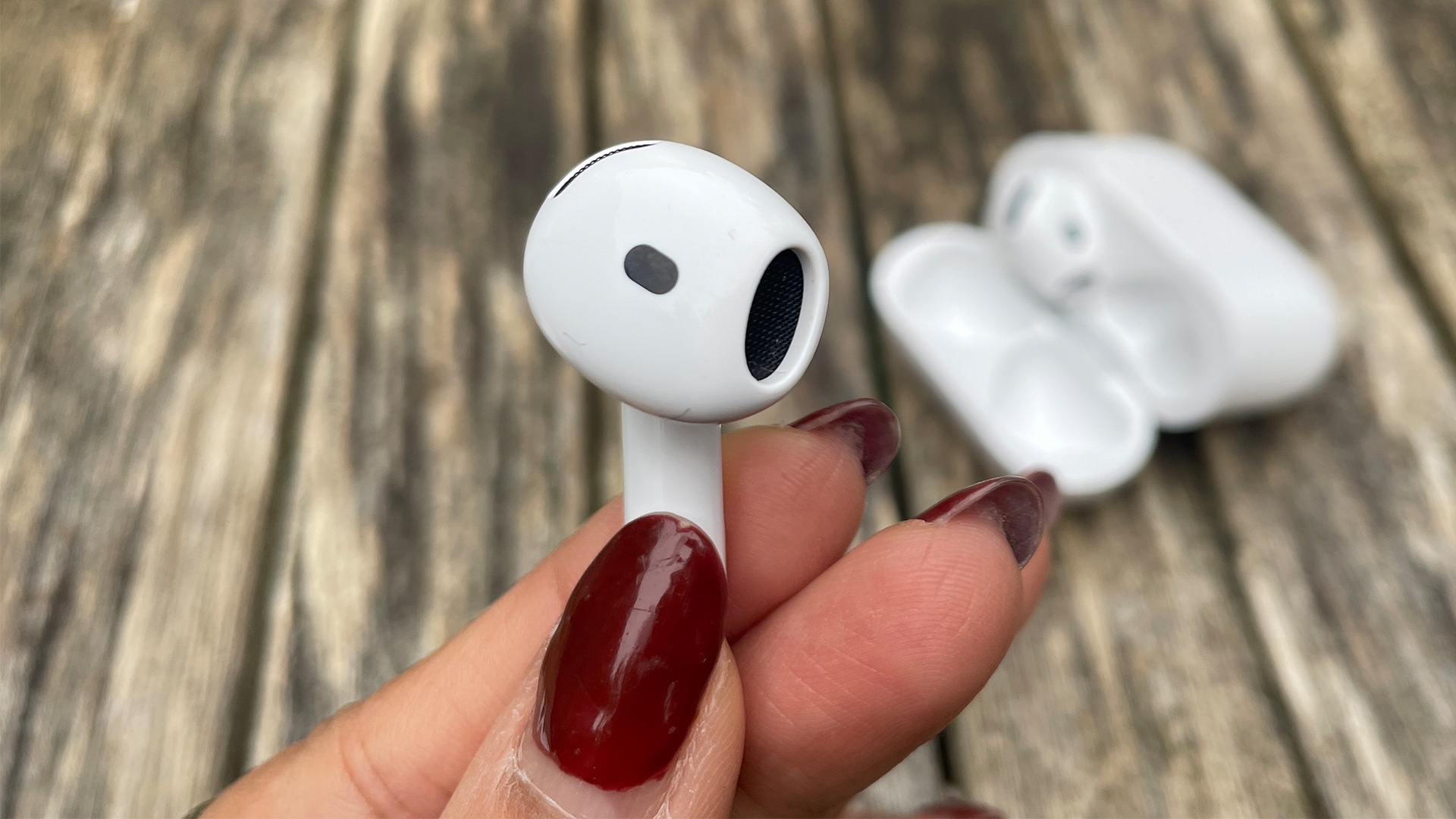
You may not immediately spot the difference, but the AirPods 4 are smaller and more refined compared with their predecessor. Apple has stuck with the ‘open’ design of its standard AirPods that has no eartips; it’s the premium ‘Pro’ line that has the swappable eartips design that we have become so accustomed to seeing these days. Apple says it has used thousands of ear shape samples and over 50 million data points that have been precisely mapped and analysed to create the ‘most comfortable’ AirPods yet. Looking at them side by side, the AirPods 4 have ever-so-slightly shorter stems, a more contoured and less-bulbous head, and a narrower ‘nozzle’ than the AirPods 3. The size and placement of the microphones and sensors has been updated, too.
They still sport the iconic white ‘toothbrush head’ look, but overall they feel lighter and more comfortable in our ears. While there are no eartips to fully secure them, we find the tapered shape of the bud does get them more nestled into our ears and means they stay put. We’ve been using the AirPods 4 with ANC for over two weeks now and they remain comfortable to wear overall. They are wonderfully light at 4.3g each, and we sometimes barely remember we are even wearing them. For those that don’t like the feel of eartips burrowing into your ears, the AirPods 4 are a great alternative.
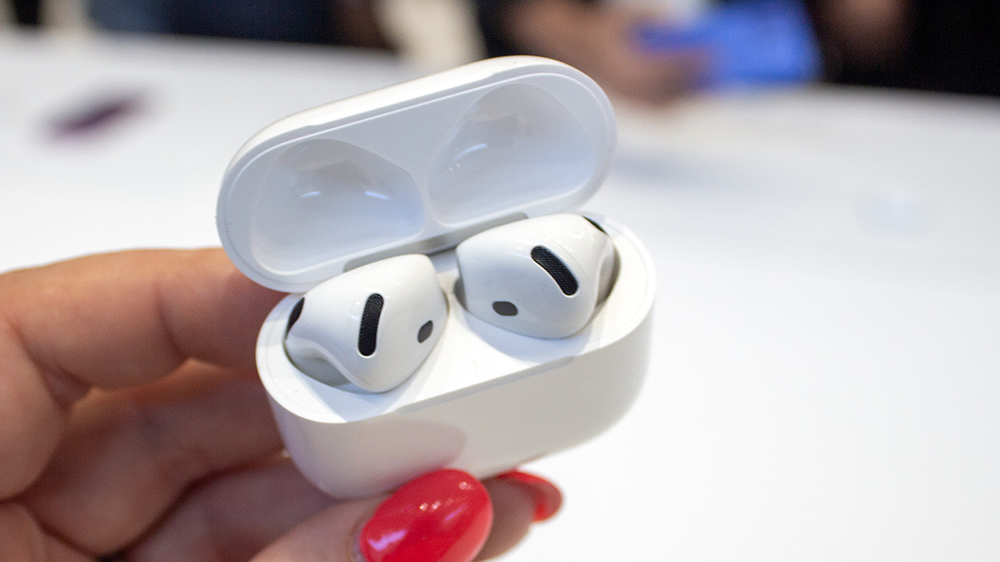
Type True wireless earbuds
Bluetooth 5.3
Active noise-cancelling? Yes
Spatial Audio? Yes
Battery life 4 hours (with ANC on), 5 hours (with ANC off), total 30 hours (with charging case)
Finishes x 1
Earbuds weight 4.3g (per earbud)
Charging case weight 34.7g
However, we should caveat that just how comfortable these buds are for you depends on how well you’ve gotten along with this kind of design before. Many on our team find this tip-less AirPods design fits snugly immediately, while others still find that these earbuds don’t suit their ear shapes at all and they pop out easily. We would recommend trying them out before committing, if possible.
As before, you can pinch the stems on the AirPods 4 to control music playback, accept or reject/end a call and summon Siri. On the AirPods 4 with ANC, you can also long-press the stems to change the noise modes. These all work responsively and swiftly, and you can further customise which controls you want to prioritise for each bud through your iPhone’s menu. We were hoping to see the on-bud volume control we like so much in the AirPods Pro 2 appear here, but no luck. To change the volume on the AirPods 4, you have to either use your phone or ask Siri to do it for you.
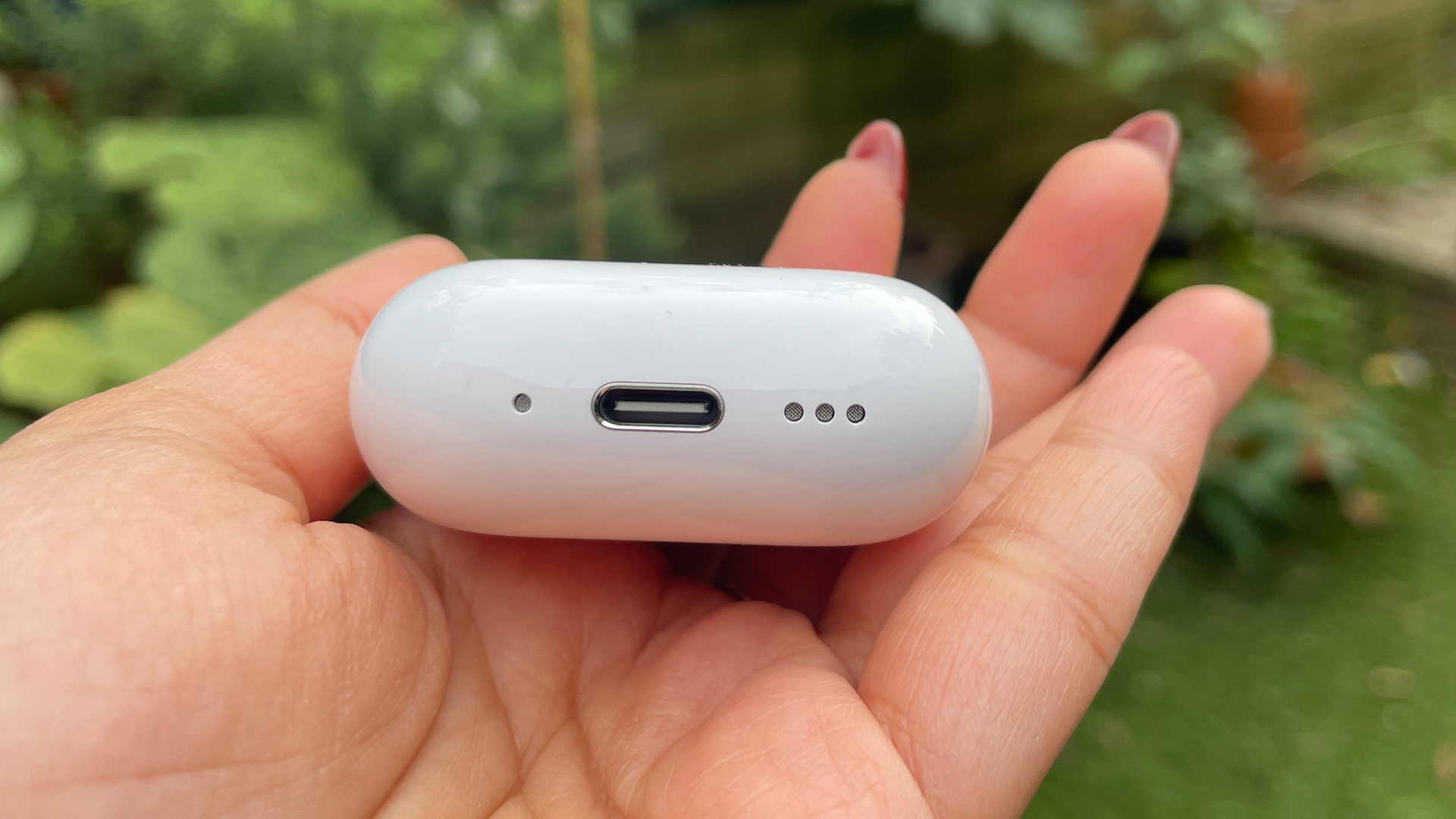
The charging case that comes with the AirPods 4 with ANC has also been redesigned to be 10 per cent more compact than ever before. It’s tiny; it’s 10mm narrower than the Pro’s charging case and so small and light that we barely feel it in our pockets. It features a USB-C charging port and also supports wireless charging. There is no cable in the box; Apple clearly expects everyone to have at least one USB-C cable knocking about in their home already, but the good news is that you can use any USB-C cable to charge the ‘Pods. Which is a nice change from having to pay extra for the old Apple-specific Lightning connector cable.
The case also has a built-in speaker like the Pro 2 so it can emit tones when using Apple's Find My function if you misplace it, but a bigger practical change is that the button at the back for Bluetooth pairing has been removed in favour of an invisible sensor under the front LED that you double tap. It works fine, but we miss the surer confirmation of a physical button when we need to force a connection, re-pair or reset the AirPods.
Features
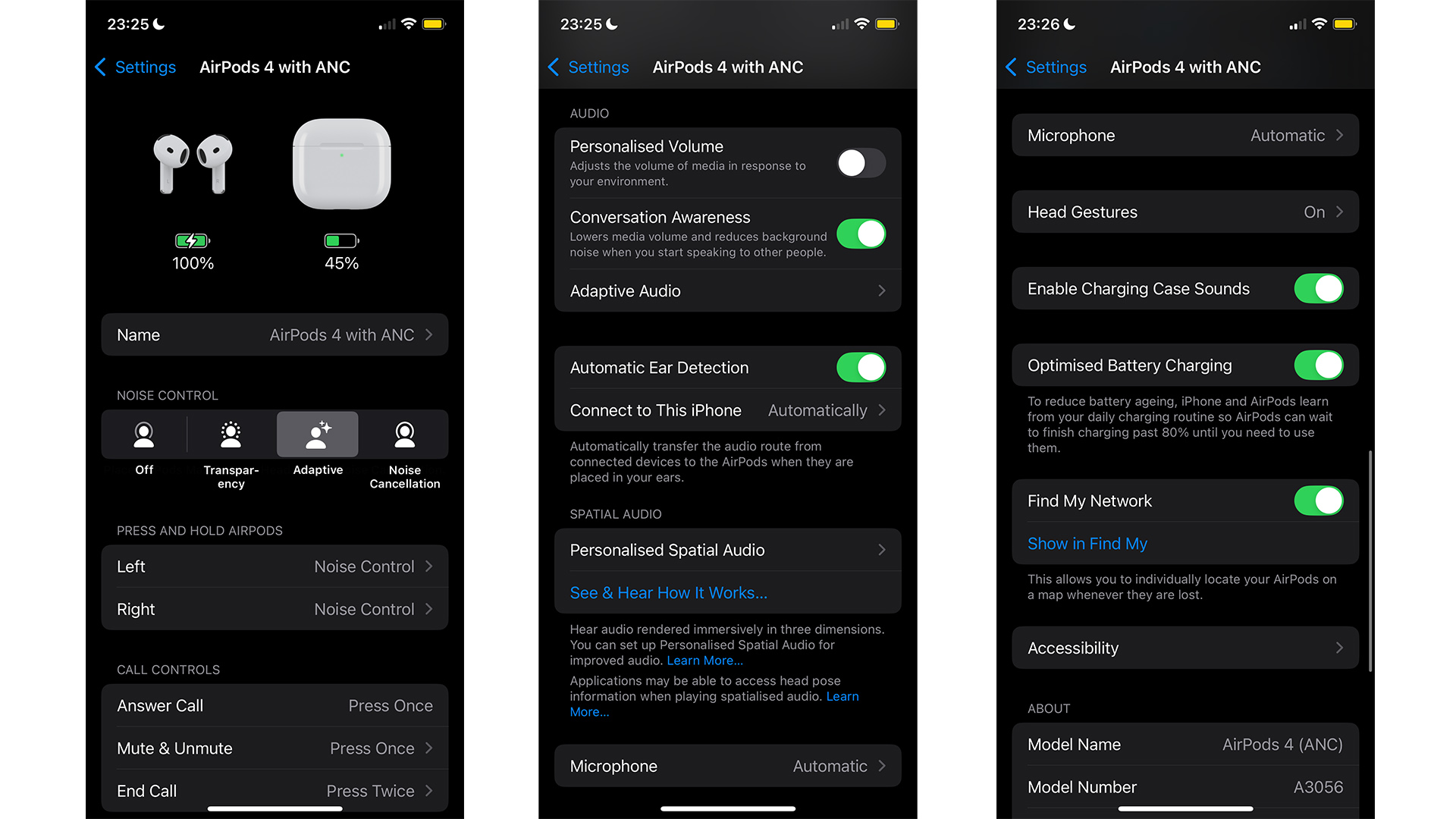
With the AirPods 4 now running on the latest H2 chip – the very same one used in the AirPods Pro 2 – that means these earbuds get plenty of flagship-level features and additional power for a faster, more intuitive use, not to mention the inclusion of ANC. As ever, the AirPods 4 work seamlessly when connecting to an iOS device, whether that’s with old or new iPhones and various MacBook laptops. With iPhones, the buds are detected the second the case is opened, and it takes mere seconds to get paired and start listening.
Like their flagship siblings, the AirPods 4 with ANC sport Bluetooth 5.3 and have an IP54 dust and waterproof rating, both of which are updates over the AirPods 3. You can access all of the AirPods 4’s in-depth settings in the iPhone’s main settings menu, or long-press on the volume bar to swiftly change noise modes, toggle between different Spatial Audio modes or turn Conversation Awareness on or off. These controls become second nature rather quickly and we’ve had no hiccups in operation during our testing time.
Where the standard AirPods 4 are identical when it comes to design, control and these basic features, the AirPods 4 with ANC start to diverge with the addition of noise-cancelling and extra features that were first introduced in the AirPods Pro 2 USB-C model last year. We’ll go into the AirPods 4’s ANC quality in detail in the section below, but you get the same noise modes as with the flagship: Off, (full) Noise-cancelling, Adaptive Audio and Transparency.
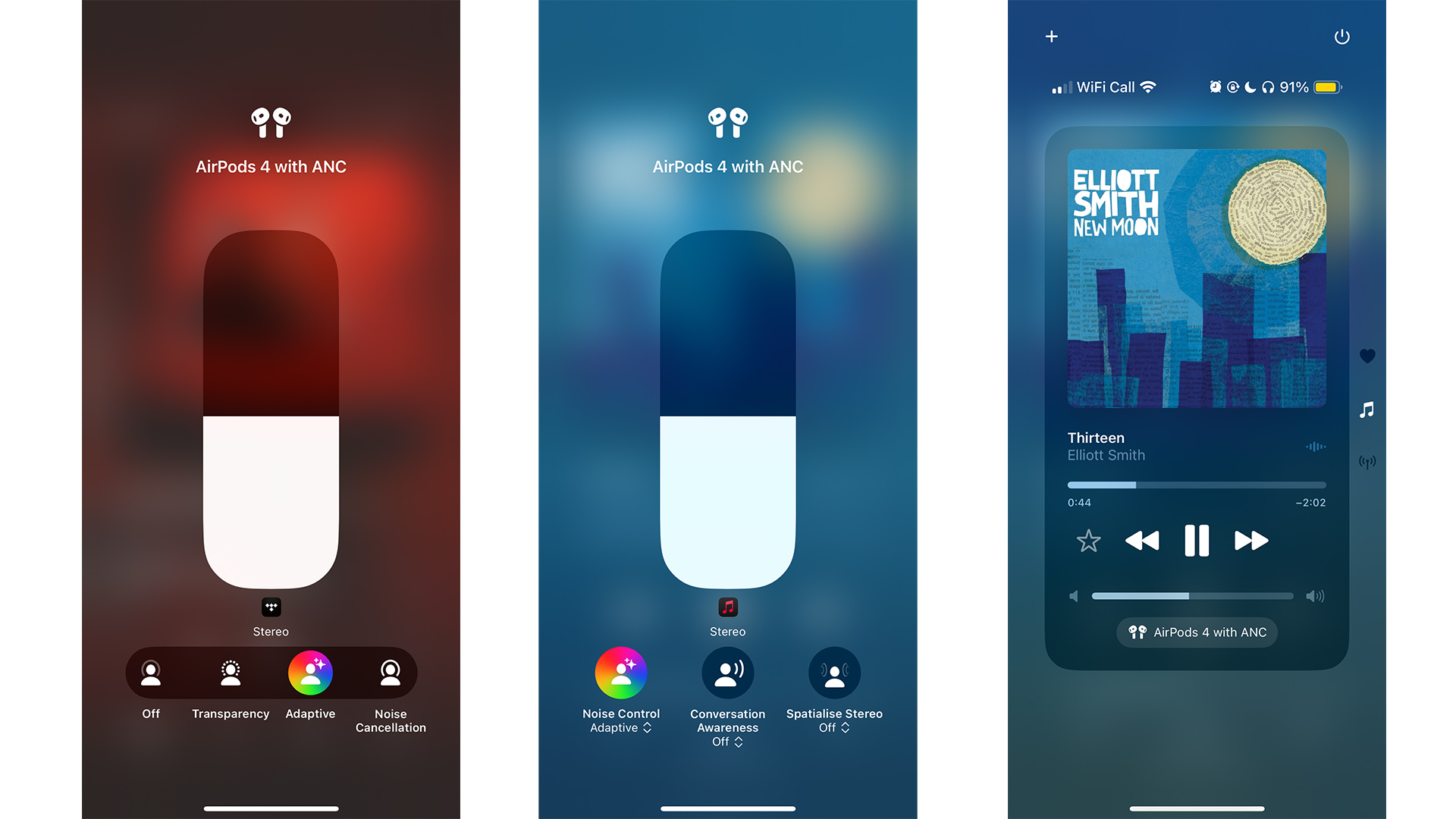
Another feature handed down from the AirPods Pro 2 is Conversation Awareness – which lowers the volume of the audio you are listening to when it detects you are speaking, meaning you can have a quick conversation – say hi to a colleague, order a coffee – without taking the buds out. Spatial Audio with dynamic head tracking returns, while Personalised Volume and head gestures for Siri interactions are other features you can try or turn off.
Android users won’t get the full complement of these iOS and Siri-specific features and there is no app to access the controls, but anyone with a non-Apple device can still listen to music when paired with the AirPods 4 with ANC (we tested this with a Samsung Galaxy S22+). You can control the different noise modes by pressing the AirPods’ stems as usual; there’s no indicator to show which mode is on, but it is easier to discern when you’re out and about in a noisy area.
Battery life
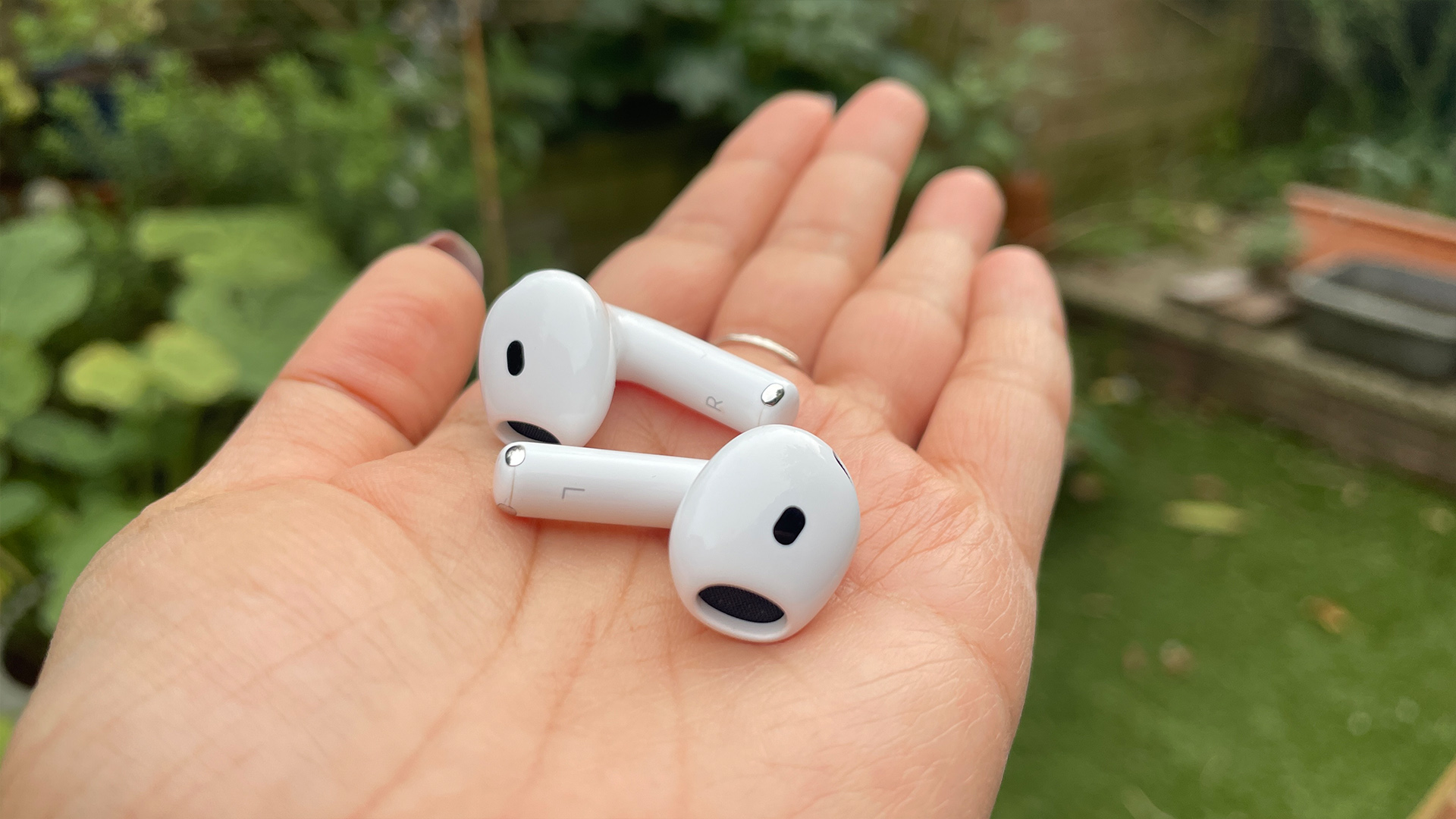
So far so good, but we are disappointed with the new AirPods’ battery life figures. The overall quoted lifespan is 30 hours with the charging case – the same as the Pro 2. However the AirPods 4’s buds can hold only five hours on a single charge without ANC, and this figure reduces to a measly four hours with ANC turned on (and down to 20 hours in total with the case). Considering you will likely be using the ANC element of these particular AirPods 4 more often than not, this is a pretty poor showing.
What happens in practice is that the buds get topped up when they’re in the charging case (five minutes in the case gives you an hour of listening time) so they always have plenty of playing time, but this drains the case’s battery life faster. This is particularly noticeable compared with the AirPods Pro 2 (six hours on the buds), whose battery indicator doesn’t drop as quickly as the AirPods 4 with ANC.
Compared with current rivals in this price range, Apple falls behind in this area. The Technics EAH-AZ60M2 offer seven hours on a single charge, while Cambridge Audio’s M100 offer 10 hours on a single charge (and a whopping 52 hours in total), both with ANC on. Perhaps the AirPods 4’s compact design compromises battery capacity, but we hope this is something Apple improves upon in the next iteration to keep up with class standards.
ANC & call quality
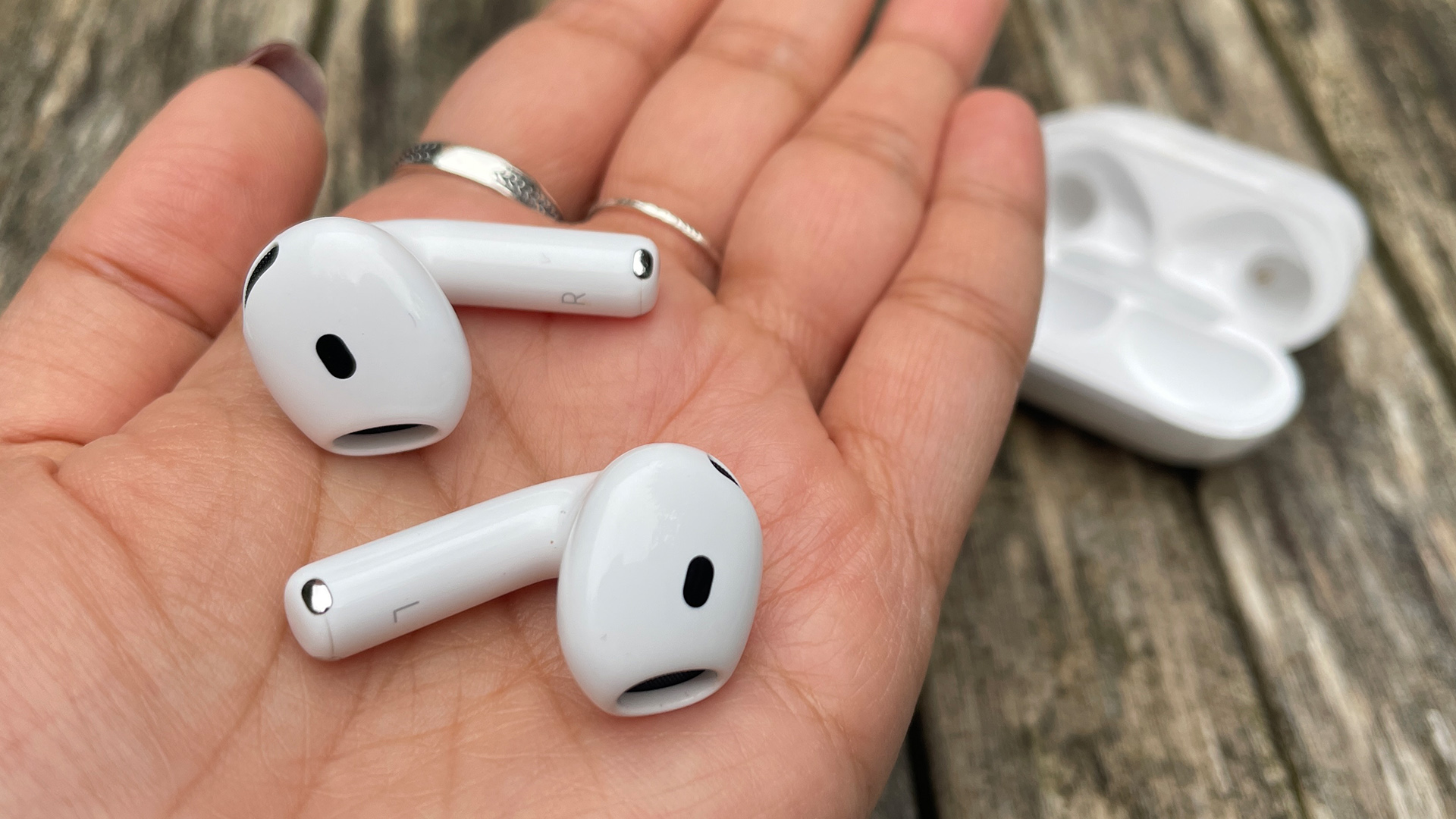
We’ve made you wait this long, but here is the important bit: how has Apple made noise-cancelling work in an open design, and does it work? The simple answer? Yes, it really does work, and it works impressively well, too.
Most noise-cancelling earbuds use eartips to create an initial seal for your ear canal, isolating you from some outside sounds before the microphones and algorithms do their job. In the AirPods 4, you don’t get the benefit of this seal, but what Apple has done is target low-level frequencies specifically to cancel out. We’re talking engine rumbles, the sound of aircon and exhaust fans, the low noise of traffic and general deep, low-level hums.
The microphones used in the AirPods 4 are apparently the same as the ones used in the flagship Pro 2 and, coupled with the processing power of the H2 chips, this offers surprisingly effective noise-cancelling from an open design. Slip the AirPods 4 on, toggle on noise-cancelling and you’ll hear those low-level sounds immediately melt away. The rumble of engines on the road, the grinding hum of trains, the exhaust fan in the kitchen – it all disappears. It’s quite impressive.
Yes, some noise still comes through, for instance, office chatter and general talking, the sound of drilling, the high-pitched noises on the London Underground, and upper-mids of train announcements. You’re not fully ensconced in a bubble of silence the way you are with the Pro 2 or the Bose QC Ultra Earbuds, but the AirPods 4 offer just enough ANC to smooth out those low rumbles so you can hear music clearly. It’s a nice halfway point between being able to hear your surroundings while not being overwhelmed by those environmental noises that stop you from hearing voices on podcasts or lyrics clearly.
We like how the Adaptive Audio mode works as well, as it dynamically adjusts the level of sound blocking depending on your surroundings. Transparency mode works fine but this feels redundant in an open design as you can clearly hear everything when ANC is turned off anyway. What does strike us is how comfortable the noise-cancelling effect is, and when you’re listening to music in general. Apple has employed a vent system for pressure equalisation, which we felt worked wonders in the Pro 2. It means that there is less of the ‘vacuum-like’ effect when noise-cancelling kicks in, leaving you with an airy feeling when wearing the AirPods 4.
Call quality is decent, too. A new Voice Isolation feature following an iOS18 software update aims to prioritise your voice and block ambient noises around you, which is available in both AirPods 4 and Pro 2. Using the AirPods 4, our voice sounds clear enough when we’re on the phone from a busy street during rush hour, but the sound of intermittent traffic still comes through on the other end, with a slight element of background hiss. It’s a marked improvement over the AirPods 3, which makes our voice sound hard and bright, while the AirPods Pro 2 offer the best call quality with clearer, more solid-sounding voices and less background noise. Overall, the AirPods 4 are perfectly fine for calls and the noise-cancelling modes work for the caller side as well.
Sound
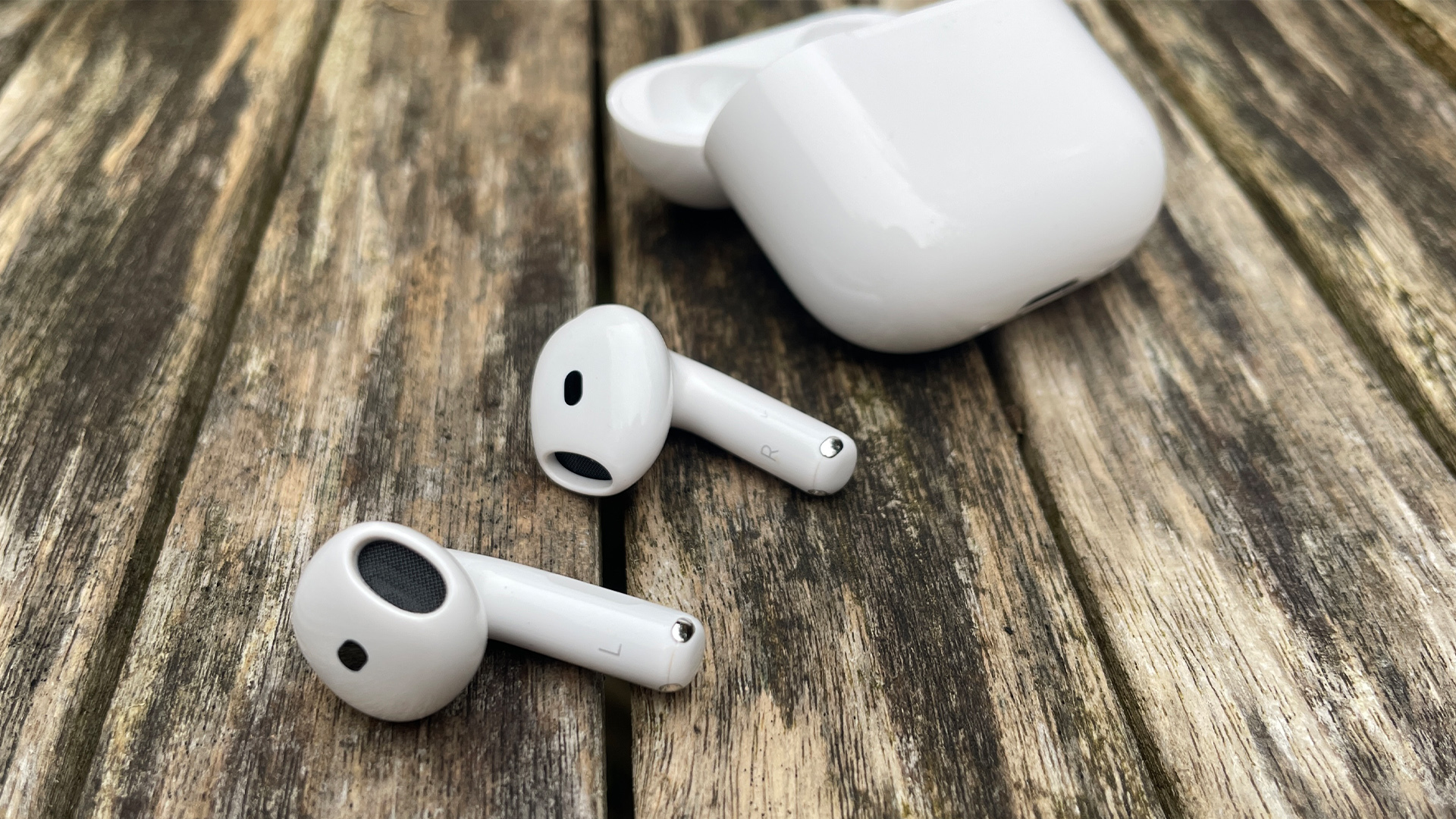
It doesn’t take us long to recognise that the AirPods 4 with ANC have a similar sonic presentation to the flagship Pro 2 model. There’s clarity and detail, agility and balance, along with a focus on voices that make them immediately appealing to listen to.
The AirPods 4 feature a new custom low-distortion driver and high dynamic range amplifier that, coupled with the H2 chip, delivers improved audio over the previous generation. It's a more detailed, powerful and entertaining sound. There’s richer weight and texture to voices and instruments, while bass notes sound more substantial and land with greater impact. In comparison, the previous AirPods 3 now sound rather recessed and flat, lacking in energy and focus. They still sound fairly clean, balanced and nimble, but voices lack the warmth, power and upfront nature of the AirPods 4; it’s difficult to go back to the AirPods 3 after you’ve heard the AirPods 4.
The plucking of guitar strings in The White Stripes’ In The Cold Cold Night sounds clear, precise and tactile, while Meg White’s lilting vocals and subtle reverb effects at the end of her distinct pronunciations are better relayed through the AirPods 4. The piano notes in Erik Satie’s Gnossienne No. 1 have depth and sound more physically real; you can hear the substantial weight of the keys hitting the main body, rather than just the superficial tinkering on the AirPods 3. The AirPods 4 deliver a bigger and more open presentation, with greater space between voices and instruments, and dig out far more detail and textural depth. They simply give you more and hold your interest better.
Dynamically, they’re engaging enough, although we could do with even greater punch, intensity and subtlety to the ebbs and flows, whether you’re playing Ain’t Nobody by Chaka Khan, Right Back To It by Waxahatchee or Linkin Park’s In The End. High notes are controlled, with enough headroom to soar without ever sounding bright or harsh. When listening with full ANC turned on, this boosts the bass notes and we lose a touch of detail; it still sounds perfectly fine and you’ll need the ANC mode when in noisy environments to hear clearly. But if you’re at home or in a quiet office, it’s worth switching ANC off to get the extra ounce of detail and clarity.
The AirPods 4 get tremendously close to the AirPods Pro 2’s presentation, but it only takes seconds of popping the AirPods Pro 2 into our ears to hear just how much more luxurious and capable the flagship pair still are. There is greater heft and punch to the lower end, while we are treated to even greater dynamic subtlety, and more nuanced and subtle detail throughout. It’s an elegant, rhythmically excellent and authoritative sound. The bass notes on Ain’t Nobody are shapely, taut and full of richness, while the way the instruments work together and build up the intensity and funk is fantastic. When rewatching episodes of House MD, Hugh Laurie’s gravelly American accent is a touch lightweight through the AirPods 4; it sounds more rounded and has more gravitas through the AirPods Pro 2.
But this is the trade-off of not having eartips that give you a solid acoustic seal and therefore better bass weight. While the grit, attitude and soulfulness of Stevie Nicks, Ice T and Alicia Keys come across more authentically through the Pro 2, the AirPods 4 are no slouch; their snappy, agile and clean performance is easy to enjoy at this mid-range level.
Verdict
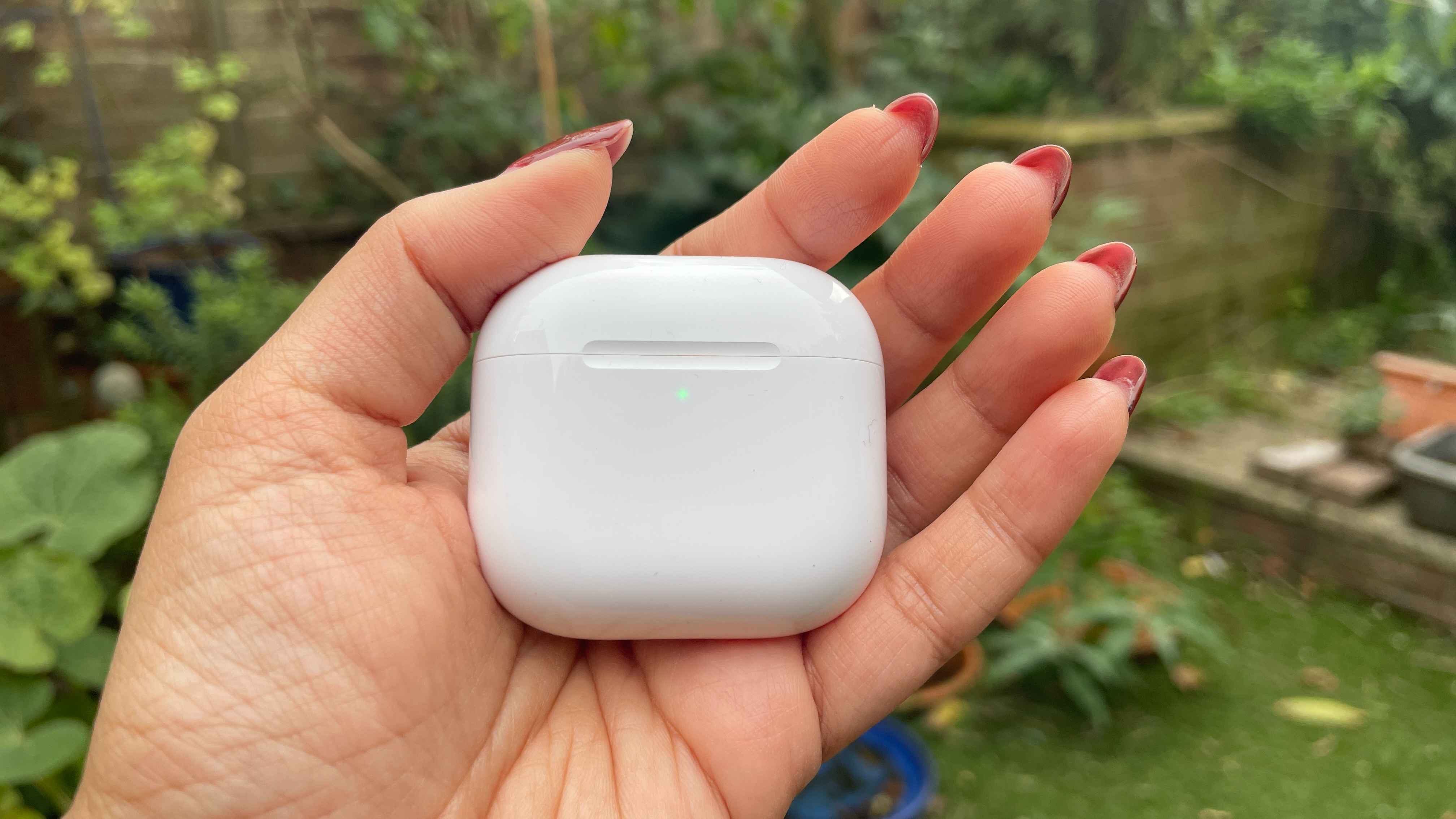
Combining effective noise-cancelling with an open design is no mean feat, and we have to applaud Apple for pulling it off successfully. The AirPods 4 with ANC will be a hit with those who love a tip-less earbuds design, and want to hear music clearly just enough to enjoy but still be aware of their surroundings. That the AirPods 4 come with so many additional features that feel like you’re getting a flagship experience at a discount is appealing, too.
Sound-wise, they’re a big improvement over the previous generation and come close to the Pro 2’s presentation, but the open design still has its compromises. The design won’t be for everyone and the battery life lags behind the competition, but the combination of crowd-pleasing features and performance means these AirPods 4 have plenty to entice and recommend. If you’re an Apple user, you should try these earbuds out.
SCORES
- Sound 4
- Features 5
- Comfort 4
MORE:
Read our review of the Apple AirPods Pro 2
Also consider the Sony WF-1000XM5







